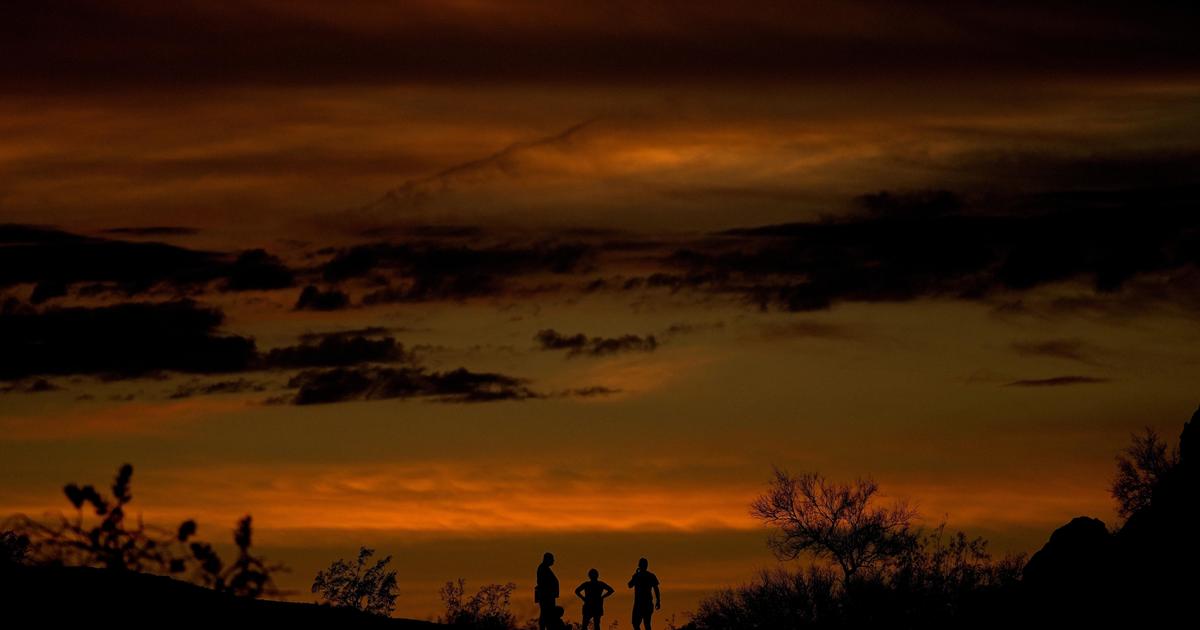Phoenix experienced a record-breaking heat wave in July, with daily temperatures hitting over 110 degrees Fahrenheit consistently. However, this scorching weather came to an end on Monday as cooling monsoon rains brought some relief to the Southwest. The heat wave began in June and affected various states, including Texas, New Mexico, Arizona, and parts of California. Among these areas, Phoenix and its suburbs endured the longest and hottest period, setting new records, such as 31 consecutive days of temperatures above 110 degrees. The previous record was 18 straight days in 1974. The streak ended on Monday when the high temperature reached 108 degrees. Although this is above normal, it marked a significant decrease compared to the previous days.
Meteorologists from the National Weather Service confirmed the end of the record streak and reported that the high temperature at Phoenix Sky Harbor Airport was only 2 degrees above normal. The relief from the heat came with rain showers and dust moving into the area on Monday night. The reprieve, however, is expected to be short-lived. The forecast predicts that temperatures will rise above 110 degrees again later in the week and that August could potentially be hotter than July.
Despite the expectation of a return to extreme heat, Phoenix residents and visitors embraced the temporary relief. It provided an opportunity for people to enjoy outdoor activities and take a break from the relentless heat. Some, like Christine Bertaux, a 76-year-old who was cooling off at a downtown day center, found respite from the scorching temperatures. Visitors from places like Wisconsin, such as Jeffrey Sharpe, also welcomed the comparably milder weather. However, the heat wave’s impact went beyond personal comfort. Phoenix experienced a record 16 consecutive days with overnight lows not falling below 90 degrees. This made it difficult for people to cool off even after sunset.
The extreme weather conditions extended beyond Phoenix. California’s Death Valley, known for its intense heat, reached temperatures close to historical highs. On July 16, it reached 125.6 degrees Fahrenheit. The hottest temperature ever recorded on Earth was 134 degrees, also in Death Valley in July 1913. Las Vegas, Nevada, tied a record on the same day, reaching 116 degrees. These extreme weather events were part of a broader pattern of unusual weather across the United States. Flash floods in Pennsylvania and flooding leading to mudslides in the Northeast caused significant damage and loss of life. Heat waves, while less visually dramatic, proved to be particularly deadly, causing numerous deaths in the South and Midwest.
The impact of the heat wave on vulnerable populations, particularly older adults and those with health conditions, was evident. At the downtown day center, where Christine Bertaux sought refuge, the manager, Rudy Soliz, expressed concerns about the challenges faced by those seeking respite from the heat. He mentioned that older people, diabetics, and people taking medications found it harder to cope with the extreme temperatures. The center experienced a high number of heat-related emergencies during the summer, including cases of heat stroke and even deaths in the area.
Maricopa County, which includes Phoenix, reported 25 heat-related deaths and another 249 deaths under investigation as potential heat-related cases. Toxicological tests are pending to determine the cause of these deaths. In 2022, the county reported a total of 425 heat-associated deaths, with over half occurring in July.
While some individuals found relief from the heat wave in Phoenix, the overall impact of the extreme temperatures remains a concern. The record-breaking heat wave and its consequences serve as a reminder of the increasing frequency and intensity of extreme weather events, highlighting the need for adaptation and resilience measures to protect vulnerable populations and mitigate the effects of climate change.
Denial of responsibility! VigourTimes is an automatic aggregator of Global media. In each content, the hyperlink to the primary source is specified. All trademarks belong to their rightful owners, and all materials to their authors. For any complaint, please reach us at – [email protected]. We will take necessary action within 24 hours.


